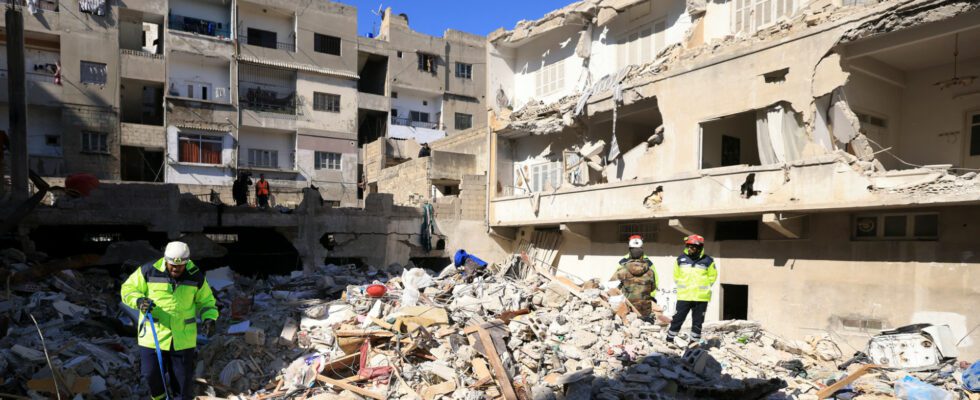Romain Rouillard
modified to
7:10 p.m., February 11, 2023
The announcement sparked a wave of hope in areas of Syria shaken by the powerful earthquake that laid waste the entire region separating Syria from neighboring Turkey. This Friday, Bashar Al-Assad, the strong man of Damascus, ended up authorizing the delivery of international aid to the whole country, including in the territories controlled by rebel groups, opposed to the central power. So far, only Turkey has enjoyed a comfortable wave of support, with 45 countries even offering their help to Ankara according to Turkish President Recep Tayyip Erdogan. While the human toll reported 25,000 dead this Saturday, Syria appeared to be the great forgotten of this international assistance and could only count on its only ally: Moscow.
Syria, an isolated territory
It must be said that the country has been immersed in a civil war for 11 years between the central power led with an iron fist by Bashar Al-Assad and various armed rebellions. A conflict which has gradually isolated Damascus and its authoritarian ruler and which today makes it more difficult to send rescuers to the region. The earthquake notably hit the rebel area of Idlib, access to which is severely controlled by the regime, and damaged the only crossing point from the Turkish border. The aid given to Syria after this natural disaster has therefore taken on the appearance of a headache for Westerners, whose diplomatic relations with Damascus are now reduced to a bare minimum.
With regard to France, they have even been at a standstill since 2012. “This considerably complicates the sending of rescuers”, argues Fabrice Balanche, teacher at the University of Tours lecturer in geography at the University Lyon- 2 and specialist in the Middle East. “In addition, for Paris, it is difficult to send aid on the spot because we cannot be sure of the good distribution of it. However, this aid must go to everyone, including in the rebel areas”. A condition that the Syrian regime therefore ended up accepting on Friday.
The risk of Turkish blockage
The region is indeed divided into four zones controlled by different entities. Providing logistical support in one of these areas then amounted to depriving another and could cause major diplomatic upheavals. “For example, sending relief to Aleppo, a city controlled by the regime, would be to recognize that there is more security in the government zone”, illustrates Fabrice Balanche. “As for the rebel territory of Idlib, it is in the hands of the Hayat Tahrir al-Cham group, a former branch of Al-Qaeda. It is an Islamic emirate in which there are notably French jihadists”, assures the specialist. The equation therefore seemed insoluble for Westerners, logically reluctant to venture into this part of the globe.
Finally, Turkey’s attitude constitutes a not insignificant blocking point in the delivery of food to Syria. “The Turks want us to help them as a priority. Erdogan is playing part of his re-election on this. And it is impossible to take the direction of Syria by road from Turkey without Ankara’s agreement”, emphasizes Fabrice Balanche. Not to mention the visceral hatred that the Turkish regime has for the Kurdish populations, who still live in the region, and who therefore cannot expect anything from Ankara.
This Saturday, from Aleppo, Tedros Adhanom Ghebreyesus, Director General of the World Health Organization (WHO) announced the arrival of “nearly 37 tons of emergency medical supplies”. A welcome help for which will probably not be enough to rescue a population already bruised by the civil war.
